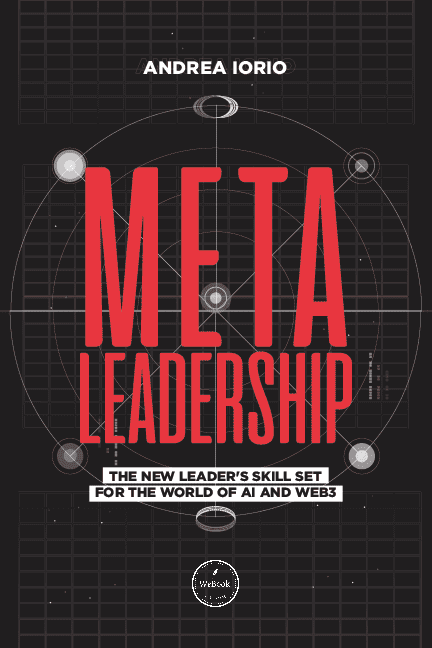In March this year, I was once again in Austin, Texas, to attend South by Southwest, the world's largest innovation event. Needless to say, it's a week filled with inspiration and knowledge, to the point that I never miss an edition of it: every year, I make sure to be present to reevaluate my beliefs and "drink directly from the source"... from the best speakers and thinkers. This year, the keynote speech that caught my attention the most was one presented by Esther Perel, a Belgian psychotherapist and a great expert on human relationships, who spoke about what she calls "Artificial Intimacy" (a clear pun on the term AI, for Artificial Intelligence). She argued that in a world where technology separates us, we cannot replace relationships with what she calls Artificial Intimacy. Instead, we need to reclaim our human connections by strengthening our Soft Skills. And that is precisely the topic we will address in this article.
Before we start, I'd like you to pay attention to the following statement made by Esther Perel, a Belgian psychologist, speaker, and bestselling author. Listen to her words below, and don't forget to turn on YouTube subtitles.
"I've been thinking a lot about modern loneliness, which is masked by hyperconnectivity. We live in a world of edited, altered images that constantly put us in a state of social comparison, and self-esteem has become dependent on performance. A performance measured by engagement metrics. Did I get enough likes? Stripping away risk and automating life is turning intimacy into a shallow, commercial process that drains passion and simultaneously atrophies the social muscles we need for successful relationships. Intimacy is part of our essence; Artificial Intelligence is not. But I am, you are. You've known intimacy since you were in your mother's womb, before you spoke your first word, you managed the language of the body well. You knew the language of intimacy: touch, smell (our memory), sight, eye contact, taste, sound. Don't forget: you are alive."
On a recent flight from São Paulo to New York, - since I couldn't sleep I started to search for documentary options that I could watch. Yes, I'm more of a documentary person than a moviegoer because they depict real lives, which I find much more interesting. Well, in the midst of this search, a documentary available on HBO Max caught my attention, "Selena Gomez: My Mind and Me," about Selena Gomez, the famous pop star and Instagram's most followed person. In the documentary, she shared her struggles after her breakup with fellow artist Justin Bieber during the peak of her popularity. At first, I thought it would be some kind of dull documentary that would put me to sleep in five minutes, but I was wrong. It was an incredible documentary that kept me awake the entire time and conveyed some crucial messages.
One of these messages came from Selena Gomez's commitment not only to openly discuss mental health but also to work on a legislation bill that would make the study of "feelings" mandatory in schools. Yes, feelings. Many may view feelings and emotions as intangible topics, or that they shouldn't have a place in formal education, but the truth is they do, especially in a world where AI will require us humans to rethink our skills and focus on those that are, for now, irreplaceable, including the ability to recognize, understand, express, and train feelings and emotions.
How would Selena Gomez's bill work? It would introduce a subject called Dialectical Behavioral Therapy, which teaches students in U.S. high schools to better interpret their emotions, going far beyond the binary questions like "Are you happy?" or "Are you sad?" Instead, it would teach them to recognize variations and nuances in emotions.
Why is this important not only in schools but also in the workplace? Because, for a long time, socio-emotional skills were set aside as they were difficult to measure, intangible, and considered less efficient and productive. However, they are becoming increasingly important today as they complement our journey to develop professionals alongside technology - professionals who can be more innovative, creative, questioning, customer-focused, among other qualities, while technology itself, along with AI, can handle mnemonic, automated, and repetitive tasks.
If we outsource workplace relationships to technology and do not develop soft skills, we run the risk of transitioning to an "artificial intimacy" in the workplace. In other words, an environment where relationships are superficial, and it's impossible to establish true bonds of trust.
Let's take a better look into how "artificial intimacy" works and why it's essential to enhance our Soft Skills in the world of AI. The term "Artificial Intimacy" wasn't actually coined by Esther Perel but by the Aspen Institute, which published a report in 2020 with the same title. This report aimed to explore "key themes and critical questions surrounding the idea of intimacy and shared language among colleagues. More importantly, the report captures a sense of urgency around the opportunities and costs of an 'emotional' human-machine relationship. And what safeguards (technical, legal, or normative) should be considered to protect against potential harm."
In this report, leaders and executives are cautioned not to treat AI as a "Big Brother," a powerful and omnipresent authority (think of Facebook or Google), that manipulates individual behavior through surveillance and hyper-personalization. This puts individuals at a disadvantage and delegates power to a third party. Instead, the report suggests an alternative metaphor - that of "Big Mother" - which steers human-AI relationships toward synergies, collaboration, and empowerment. Instead of big data and surveillance, the metaphor emphasizes the need to prioritize self-awareness, self-care, and independence, much like a mother does.
Consider this: a mother knows your weaknesses but helps you overcome them; she teaches and helps you make clearer decisions; she protects you from ill-intentioned individuals and never reveals your secrets; she helps you become the best human you can be. Lucas Dixon, a scientist at Google Research, also provided three additional metaphors for consideration:
- AI as "another sense";
- AI as a sub-personality of the person using it; and
- AI as a relationship in itself.
Do you see how AI can be a kind ally? It's only through this approach that it can avoid creating artificial intimacy and maintain genuine human connections.
In other words, it can become an ally of Soft Skills.
Consider this: The Dale Carnegie Institute conducted a survey asking leaders which skills they believe they will need to remain competitive as AI and automation become more common. More than 7 out of 10 chose interpersonal skills (communication, critical thinking, creativity, teamwork) over hard skills (73% to 27%). So far, everything aligns with our reasoning. The problem? There's still a significant gap in terms of soft skills in companies. The Dale Carnegie research asked senior leaders which soft skills would be most important to work successfully alongside AI, and they asked all respondents if they had received training in these areas in the last three years, and the gap is substantial.
For instance, 69% of leaders say communication skills are vital, but only 40% of respondents claim to have received recent communication skills training. Similarly, 64% of leaders emphasize creativity skills, while only 30% of respondents received creativity training in the last three years. Other significant gaps include critical thinking (only 27% received training) and emotional intelligence (only 19% received training). Here's an important call to HR leaders: it's essential to invest more and more in training, not only in hard skills but in soft skills as well.
The key takeaway here is not to neglect the essential human component and, particularly, the associated skills that your personnel need to enable the adoption and success of AI in the workplace. As shown by the Dale Carnegie research, people want to know if they possess the skills they believe they will need to adapt. This will give them confidence, and this - along with confidence in leadership and a high level of transparency - will make them more optimistic about AI.
McKinsey predicts that AI and robotic automation will require up to 375 million people worldwide to change their occupations or learn new skills by 2030. With that in mind, reflect on your own learning and development strategies: are they aligned with the skills that will become increasingly important in the era of AI?









